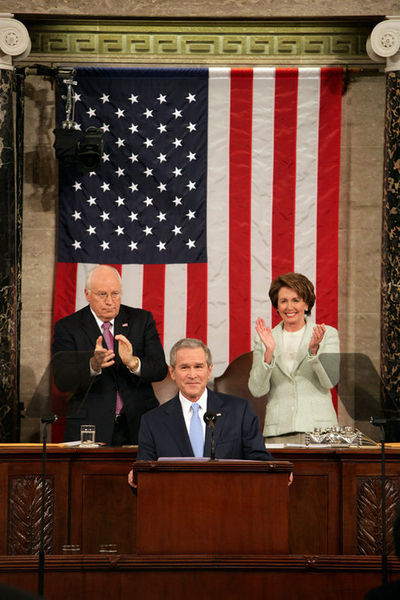05.12.13
Posted in America, Law, Patents at 11:29 am by Dr. Roy Schestowitz

Summary: The collection of opinions from notable figures and sources that analysed the CAFC decision regarding a software patent in the US
Excessive optimism in NZ will do not good for the cause of software patents elimination. Software patents have been weakened in NZ, but they are not dead. The same is true for EU. Loopholes remain, and they remain by design.
A couple of days ago we mentioned the CAFC (US) ruling/s, noting that it helps legitimise the status quo because mixed messages are sent, offering no decent clarity. It was a missed opportunity. CAFC was not only lobbied by multinational corporations but also front groups like the Business Software Alliance (BSA), which is funded by Microsoft for lobbying (for software patents of course). Here is the original ruling/s [PDF] (text version here). Grant Gross wrote in IDG that the ruling/s could be the end of software patents. It could, but won’t. “The case generated briefs from Google, Facebook, Newegg and software trade group BSA, with some tech companies arguing the Alice patents should be invalid,” he writes. And based on this report, perhaps the headline in particular, Nicolas Charbonnier wrote: “Most Apple and Microsoft patents are hereby invalidated and worthless. Have a nice day.”
The article from Groklaw was more in-depth than most and it transcribed /extracted the content of the PDF, making it more accessible and searchable. Pamela Jones wrote: “I remember the first time we wrote on Groklaw that software and patents need to get a divorce. Remember? So long ago, and how everybody laughed at us. I remember that too. I am thinking about Apple and Microsoft and all the software patent bullies. Well, let’s not get ahead of ourselves.”
Restrained optimism is better than excessive optimism, but let’s survey some other optimists. Jones wrote by citation/blockquote, attributing Moore: “Let’s be clear: if all of these claims, including the system claims, are not patent-eligible, this case is the death of hundreds of thousands of patents, including all business method, financial system, and software patents as well as many computer implemented and telecommunications patents” (that is why it’s such a big case).
Brian J. Love, a Law Professor at Santa Clara University, said: “Ultimate analysis of CLS Bank: Back where we started, in that panel draw still determines who wins 101 appeals in software cases.”
Poul-Henning Kamp, “Author of a lot of FreeBSD, most of Varnish and tons of other Open Source Software” (to use his own description of himself), said it “Looks a lot like the end of pure software patents to me” (source).
The Oregonian correctly pointed out that the court was split on the issue. To quote: “The nation’s top patent court issued a deeply divided opinion Friday on how to determine whether software is eligible for legal protection, reflecting the broader debate that has split the computer industry.
“The U.S. Court of Appeals for the Federal Circuit in Washington, which handles all patent appeals, issued a 135-page decision by 10 circuit judges that included five viewpoints and “additional reflections” from Chief Judge Randall Rader.”
AOL said that the “Federal Circuit Rules Software Invention Unpatentable” and this is inaccurate if applied to the whole, in generality. This gives false expectation that something will happen despite there being no major change.
The bottom line is, as the EFF points out, patentability of software needs to be addressed by the SCOTUS again. The decision there needs to be less than a two-way tie this time around. █
Permalink
 Send this to a friend
Send this to a friend
05.11.13
Posted in America, Patents at 2:37 am by Dr. Roy Schestowitz
Corporations-run nation cannot listen to the wisdom of citizens-run nation

Summary: In disappointing news from CAFC, which helped make software patents the monster they have become in the United States (and only in the United States, deviating from much of the world), there is further legitimisation of this root problem, whereas NZ does the very opposite
WHETHER software patents in New Zealand have officially been destroyed may definitely be a subject of active debate (we wrote about it twice already), but de-legitimisation of software patents is certainly achieved and the NZ press still plays along [1, 2, 3], making software patents look very bad. Patent lawyers are hardly quoted in NZ articles and multinational corporations like IBM and Microsoft seem to have fled from the scene, having lobbied heavily to legitimise software patents in NZ (unbelievable overreach not just by corporations but by foreign corporations). As Alan Lord put it the other day, “Sanity in #NewZealand. Gov says NO to #swpats [software patents] … When is the USA going to wake up and smell the coffee?”
“Patent lawyers are hardly quoted in NZ articles and multinational corporations like IBM and Microsoft seem to have fled from the scene, having lobbied heavily to legitimise software patents in NZ (unbelievable overreach not just by corporations but by foreign corporations).”The rude patent boosting site (patent lawyers) say “New Zealand has not abolished software patents”, but this is more spin than truth. Being IAM ‘magazine’, they always try to discredit software patents-hostile sources and instead push the pro-software patents line.
Meanwhile, teaches us Reuters in some breaking news (overnight), the United States has done nothing like NZ, in spite of having another opportunity. The headline says that the “U.S. appeals court issues divided ruling in software patent case” and the opening paragraph names the Australian company Alice Corp: “A federal appeals court on Friday ruled that Australia’s Alice Corp does not hold valid patents on a computerized trading platform, but it remained unclear how the decision would affect other software patents.
“The software industry had been watching the case for a clue to legal protection of intellectual property rights that generate much of the sector’s profits. But the U.S. Federal Circuit Court of Appeals failed to reach a consensus on how to determine what software is patentable.”
As TechDirt put it, “10 Judges, 135 Pages Of Ruling About Software Patents… And Zero Clarification”. It says that CAFC “has quite the reputation for mucking up rulings concerning patents over the years. In fact, there’s a strong argument to be made that CAFC is a key reason that our patent system is so screwed up today. So, leave it to CAFC to issue one of the most bizarre and useless rulings ever concerning software patents. The specific case is CLS Bank v. Alice Corp, and we had noted this was a chance for CAFC to actually fix the software patents problem, though the oral hearings suggested a very conflicted court, and that’s certainly what came out in the ruling. Or, rather, I should say: rulings.”
“There are seven (count ‘em) different opinions issued in the document,” the site says, “none of them meaning anything, because none of them — other than that one paragraph above, have more than the majority in agreement.”
Masnick notes that “basically, all of this means nothing. It doesn’t help to wipe out or clarify software patents at all. It doesn’t really help anyone. It probably doesn’t make anyone on any side of this issue happy. It just leads to more confusion.
“However, as Julie Samuels at the EFF notes, hopefully this will help make it clear to the Supreme Court that it finally needs to issue a clear ruling on software patents, after completely punting the last time it had a chance.”
“We wrote about CAFC before and we also wrote about SCOTUS, noting its role in perpetuating software patents in the US. Both rule favourably towards software patents, perhaps due to influence from large corporations.”Julie Samuels says “It’s Time [for SCOTUS] to Take Up Software Patents (Again)”
We wrote about CAFC before and we also wrote about SCOTUS, noting its role in perpetuating software patents in the US. Both rule favourably towards software patents, perhaps due to influence from large corporations. Just look who the administration appoints to run the patent system and the courts.
Surprisingly (or not), it was a law professor who actually said the ruling was favourable to weakening of software patents. This contradicts somewhat other reports we can locate at this stage (this is fresh news). █
Permalink
 Send this to a friend
Send this to a friend
04.18.13
Posted in America, Patents at 11:11 am by Dr. Roy Schestowitz

Summary: The US patent system wants us to believe that humans should be deserving of a monopoly on life
The USPTO has gotten scrutinised and came under heavy fire after it had awarded patents on genetics. These were not invented, so they redefine what parents actually are. This site does not deal much with patents other than software patents (that’s not to say that these are the only contemptible monopolies), but some other sites, including sites of lawyers who know nothing about biology (some would say that genetics were invented by “God”), did cover an important case which can help redefine US patents as applying to naturally-recurring biology, too. Here are three links:
-
Today the Supreme Court will hear oral arguments in Association for Molecular Pathology v. Myriad Genetics, Inc. Myriad Genetics was founded in 1991, and licensed, exclusively in the field of diagnostics, and also invented a group of patents associated with the five to ten percent of breast cancers known to have a strong hereditary component. The biomarkers disclosed, discussed, and claimed in these patents are also associated with an increased lifetime risk of ovarian and other cancers. See this U.S. Government website Genetics of Breast and Ovarian Cancer, updated 3/04/2013, and accessed April 14, 2013, for timely information on the significance of these biomarkers.
-
-
Today is human genome day at the US Supreme Court. There will be oral argument on Association for Molecular Pathology v. Myriad Genetics, Inc.. The link will take you to the ABA’s collection of amicus briefs, and there are many of them, and the merits briefs. The question before the court is this:
Rather than slam only the patent holders (or applicants) we should chastise the system led by the USPTO, aided by SCOTUS, for serving multinational megacorporations at the expense of people and thus causing more economic disparity and death. █
Permalink
 Send this to a friend
Send this to a friend
04.03.13
Posted in America, Asia, Patents at 3:00 pm by Dr. Roy Schestowitz

Summary: Small businesses too — not just middle- and large-sized corporations — increasingly targeted by patent trolls and software patents; opposition to patent maximalism on the rise
The USPTO has been taking a lot of beatings recently. Many people from all around the world are berating and condemning the USPTO as well as key utilisers like Monsanto. SAP has been hit too, despite being based in Europe. The patent trolls went after American customers. To quote the British press, “SAP has moved to defend the users of its Sybase database software by filing suit against Pi-Net International, a “patent troll” that has filed several patent infringement lawsuits against SAP customers in the US financial services sector over patents it claims SAP is infringing.
“Pi-Net claims that SAP’s Financial Fusion software, used for online banking, among other things, infringes three of its software patents. SAP acquired the Financial Fusion product as a result of its 2010 acquisition of Sybase.”
Masnick’s site says that small companies too begin to realise the threat of trolls. To quote:
Startups Realizing That Patent Trolls Are An Existential Threat
Most people used to think that patent trolls tended to focus on bigger companies — those with huge bank accounts who’d rather pay the troll off than deal with a lawsuit. But over the last few years, we’ve been hearing more and more stories about startups hit by patent trolls, who are taking advantage of the fact that a patent lawsuit — win or lose — would almost certainly kill the company. One common tactic? Wait until a startup announces a round of fundraising and then pounce — knowing that the company (a) has some money and (b) has little time to deal with a lawsuit. Finally, this issue is getting some attention. Crain’s recently had a piece on patent trolls going “downmarket” after startups, which has some quotes from startup execs (many who want to remain anonymous to avoid further attacks).
Wired continues to have a lawyers-only debate about software patents. The latest comes from someone who was previously at the University of Miami (law) and there is still no call to abolish software patents. Here is a baffling statement:
Infringement of software patents is usually a good thing because in most cases the alternative to infringing is to produce nothing new. So, what if we could fix the patent problem by rethinking the assumption that infringement should always be penalized?
Another lawyer gets platform at Wired to say: “It’s become clear that the patent system is impeding, rather than incentivizing, innovation. The laundry list of what’s gone wrong is long: a standard for patentable subject matter that makes no sense, notoriously vague and hard-to-understand claim language, the rise of the patent trolls … and all of these problems disproportionately impact software.”
Yes, so why not call for the end of them all? Where are the software developers in this series of articles from the popular magazine? Do the editors at Wired even approach developers, or even science professors as opposed to law professors? Nope, hardly.
Speaking of controversial patents, there is some good news this week:
-
In a case closely watched by global drugmakers, Switzerland’s Novartis AG has been fighting since 2006 to patent its leukemia-treating drug Glivec in India on the grounds that it is a newer version. India revised its patent protection law in 2005.
-
India’s Supreme Court rejects plea from Swiss pharmaceutical giant, paving way for more affordable, generic medicines worldwide
-
The Australian government has released the draft report of its Pharmaceutical Patents Review, which had been tasked to “review the effectiveness of the Australian patent system in providing timely access to affordable pharmaceutical and medical treatments and supporting innovation.” The report considered domestic law on patents, data exclusivity, and pharmaceuticals, as well as Australia’s current trade obligations and its position in ongoing trade negotiations.
-
India’s Supreme Court on Monday rejected a Swiss pharmaceutical company’s effort to patent an updated version of its cancer drug, a decision aimed at boosting a domestic generic drug manufacturing industry that supplies cheap versions of lifesaving cancer and HIV medicines for much of the developing world.
We wrote about Novartis in [1, 2, 3, 4]. Through proxies specialising in PR, Bill Gates and his friend Nathan Myhrvold love to prop up international monopolies of such companies; they help disguise clinical trials (at the expense of fragile populations) as ‘charity’, never mind the truth of the matter. Slashdot has become a pathetic wuss for helping Myhrvold whitewash himself today. Who on Earth thought this would be a good idea? There are PR talking points all over the place, as we expected right from the start.
Patents that help cause death or limit access to cures based on one’s personal wealth are not ethical. They might even be more harmful than software patents and patents on seed DNA, which India will hopefully squash just like Novartis patents. █
Permalink
 Send this to a friend
Send this to a friend
03.21.13
Posted in America, Law, Patents at 5:25 am by Dr. Roy Schestowitz
When corporations are allegedly people and corporate lawyers — people whose professional agenda is to prop up ‘IP’ — are writing the laws

Summary: No signs of real change because hearings involve lawyers of large corporations rather than representatives of public interests
The USPTO remains a farce of a system which strives to assimilate patent offices all around the world to itself. It needs to be stopped or else we will all face the consequences, be those consequences visible or not. A lot of what we buy costs little to manufacture, but since we pay patent tolls prices can be inflated considerably.
Groklaw writes about the House hearing we were referring to the other day. It is a debate for lawyers only, based on this summary which states:
Thursday was the hearing on abusive patent litigation by the House Judiciary Committee’s Subcommittee on Courts, Intellectual Property and the Internet. By abusive patent litigation, they mean trolls — or as one calls them when one holds one’s pinky genteelly in the air, NPEs, nonpracticing entities. I put out a call for one of Groklaw’s own to attend and let us know what happened. Webster was able to attend, and he has provided an eyewitness account for us in his own inimitable style.
The chairman of the hearing, US Representative Bob Goodlatte, opened with a statement, as did several members of the subcommittee with a little speechifying of their own, and then the invited witnesses of the day each told about their company’s experiences with abusive litigation, except for one, a lawyer whose firm represents trolls and who opined that the patent system is working well overall. If you click each of the following names of the witnesses, you can download as a PDF the written testimony each provided in advance:
* Mr. Mark Chandler, Senior VP, General Counsel and Secretary, Cisco Systems, Inc.
* Ms. Janet L. Dhillon, Exec. VP, General Counsel and Secretary, J.C. Penney Company, Inc.
* Mr. John G. Boswell, Sr. VP, Chief Legal Officer and Corporate Secretary, SAS Institute, Inc.
* Mr. C. Graham Gerst, Partner, Global IP Law Group, LLC
* Mr. Philip S. Johnson, Sr. VP and Chief IP Counsel, Johnson & Johnson
* Mr. Dana Rao, VP and Assoc. General Counsel for Intellectual Property Litigation, Adobe Systems, Inc.
Mark Bohannon, Red hat’s Vice President of Corporate Affairs and Global Public Policy, wrote about this hearing as follows:
As President Obama pointed out in February, the patent reform legislation Congress passed several years ago hasn’t “captured all the problems” and the bill “only went about halfway to where we need to go.”
“[Patent trolls] are a classic example. They don’t actually produce anything themselves,” the President said. “They’re just trying to essentially leverage and hijack somebody else’s idea and see if they can extort some money out of them.”
It is important to keep contacting policy makers on this important issue. If you haven’t done so, let the members of the Judiciary Committee in both the House and Senate hear from you. Your voice is important and can make a difference.
Your voice is important and but unfortunately you cannot make a difference. Why? Because unless you have the name of some giant corporation next to your name and you claim to have a degree in law, these people will treat you like dirt and will never give you a platform, let alone any influence.
The FSF is about to have a more suitable public event about patents — one where actual scientists participate. Here are the details which the FSF published this week:
Chicago, IL – Room 1040, 10th floor, Power Rogers & Smith Ceremonial Courtroom, Philip H. Corboy Law Center, 25 E. Pearson St., Water Tower Campus, Loyola University Chicago
Going back to Groklaw, Posner, a critic of the patent system and of software patents in particular [1, 2, 3, 4, 5], is mentioned in this article which alludes to the patent fight against Android:
Motorola has now filed its response to Apple’s appeal of Judge Richard Posner’s decision to toss out Apple’s claims against Motorola (and vice versa), and it adds its own cross appeal [PDF] on the vice versa part — especially challenging the implication of Judge Posner’s ruling that there can be no injunctive relief for FRAND patent owners ever, as a categorical rule.
A blanket denial of the right to seek injunctive relief, Motorola argues, violates patent law, contradicts eBay v. MercExchange [PDF], where the US Supreme Court held that it was error to come up with a categorical rule that “injunctive relief could not issue in a broad swath of cases”, and violates the original expectations of donors of technology to standards bodies. In fact, it says any such rule would violate the US Constitution, which provides that Congress shall have power to secure exclusive rights for inventors, and in the Patent Act Congress came up with, it says every grant to a patentee includes the right to exclude others. Motorola asserts that it has never waived its rights to injunctive relief and states that there is no language in its ETSI agreements requiring it to do so. Motorola argues that there should continue to be a case-by-case analysis under eBay, with judges having discretion to make such decisions based on the particular facts of each case.
Fair warning, though: the PDF is 737 pages. The actual brief is one-tenth that, 73 pages, so I’ve done that part of it for you as text. The rest is a collection of patents at issue, judge’s orders in this case, and one from a related Apple v. Motorola litigation in Wisconsin, which is where this case began, before being transferred to Illinois and Judge Posner.
Posner, a US judge, has so far been the exception when it comes too his views on these patent battles and software patents, which he opposes. The house hearing had nobody like Posner in it; it was just a bunch of lawyers bickering and gloating over patents.
Here is LG using patent FUD against its biggest national rival. It’s about software patents:
The Samsung Galaxy S4 possibly uses a new type of eye-tracking software that LG believes violates one of its own patents.
LG on Tuesday claimed that its South Korean competitor may have violated the company’s patent which pauses video clips when a user turns their head away from the video they are watching.
During the Samsung Galaxy S4 event last week the company announced the new feature as one of the smartphones best new options.
Samsung however was very clear in stating that it does not actually use eye-tracking technology but rather facial recognition software.
Apple too is reportedly being hit by patents relating to software:
The Wall Street Journal reports that patent holding company Intertrust Technologies Corp. has filed suit against Apple, accusing the Cupertino-based company of infringing on 15 of Intertrust’s patents related to “security and distributed trusted computing.”
Publications like the Wall Street Journal view the patent problem as trolls hurting large corporations such as Apple. But it’s not the real issue. It’s just a symptom of the real issue. The multinational corporations try to change the law to benefit corporations, not trolls and not anyone else. People should be outraged by this. █
Permalink
 Send this to a friend
Send this to a friend
03.19.13
Posted in America, Patents at 12:36 pm by Dr. Roy Schestowitz

Summary: Ambiguous message from the US government, which has so far failed to make progress on patent reform and even contributes to the problems
Some days ago we wrote about how MPEG-LA managed to extort even free codecs. As one site notes:
Last week, MPEG LA and Google announced that they entered into agreements granting Google a license to technologies that “may” be essential to VP8, the video codec fueling WebM. While this agreement may have little impact in the traditional streaming market, it could be very significant in other markets, particularly WebRTC. No financial terms of the agreement were announced, and MPEG LA declined to answer our questions.
These secret deals usually mean payment. Neither party wants the public to know about it as they collude against the public interest. It was only last Thursday that the Committee on the Judiciary in the US House of Representatives spoke about patent abuse. This comes from the US government:
Hearing on: Abusive Patent Litigation: The Impact on American Innovation & Jobs, and Potential Solutions
One notable victim, SAS, issued some feedback. The SAS statement [PDF] says: “In none of the cases where SAS has been sued for patent infringement is the plaintiff an operating company that makes anything, sells anything, produces anything or employs anyone (other than a bunch of lawyers). All of these cases involve what I call “patent trolls” – which others more demurely call Non-Practicing Entities, or Patent Assertion Entities — as plaintiff. It is a problem that is only becoming worse for companies like SAS for one simple reason: it is a business model that is incredibly cheap to pursue, remarkably profitable to the pursuers, and disproportionately damaging to the victims.”
This statement was highlighted by Groklaw, which recently made some suggestions for the debate of the USPTO. Here is more of it:
Here’s Groklaw’s response to the USPTO’s request for suggested topics for discussion in the future by the Software Partnership. We just sent it to the USPTO today.
We are also publishing here on Groklaw a more detailed supplement on those four topics, explaining in depth why we propose them, with references, on the theme, “Using Semiotics to Identify Patent-Eligible Software”. The supplement is referenced in the document sent, if they wish to read more in-depth arguments, based on interest level.
Groklaw shows how, based on the report “Top U.S. lawyer to high court focuses on antitrust, patent cases”, further action is expected to be taken. Lastly, the troll InterDigital [1, 2] is mentioned by patent lawyers. No signs of trolls being impeded by government action just yet. Lots of rhetoric and promises, no actions at all.
Here is a former US prosecutor turning into a troll:
High-profile former U.S. federal prosecutor Andrew Stolper said Tuesday he had teamed up with an ex-FBI agent to form a private equity firm specializing in litigation finance, a growing business in the legal industry.
Stolper, whose career included the ill-fated Broadcom case in 2009, said Crux Capital launched on Monday. He resigned last week from his position with the U.S. Attorney’s office in Santa Ana, where he had worked for 10 years.
The litigation finance boutique, based in Irvine, Calif., will specialize in plaintiff’s commercial litigation and eventually staff up to about five people.
A spokesman for the U.S. Attorney’s office declined to comment about Stolper’s move into private practice.
A U.S. District Court judge singled out Stolper for criticism when he dismissed criminal stock fraud charges against Broadcom Corp co-founder Henry T. Nicholas III in 2009, citing a “shameful” prosecution campaign to intimidate witnesses.
And now, having had a career as a ‘servant’, this man simply becomes a patent troll. The government seems to manufacture more trolls than it ever stops (zero). What ever happened to the antitrust complaint against MPEG-LA? Despite Promises™ and Hope® (when it comes to patent policy), President Obama is no better than his predecessors when it comes to tackling patent mess. █
Permalink
 Send this to a friend
Send this to a friend
03.14.13
Posted in America, Europe, Patents at 12:48 pm by Dr. Roy Schestowitz

Summary: More arguments over the issue which is software patenting and who’s behind it
A longtime booster of Microsoft gives a platform to software patents proponents, in this case the first person to acquire a software patents, or at least the most vocal such person (what constitutes a software patent is subjective):
Guest post written by Martin Goetz
The author, Martin Goetz, opposes lawyer Eric Goldman, whose position we wrote about before. “Unfortunately,” Goetz says in an ad hominem fashion, “Goldman is not only wrong on most of his statements which he presents as “facts,” he is viewing this controversy from his vantage point only as an IP lawyer and teacher. Had he worked in the software industry, he might have had a much different viewpoint. I say this after having spent over 35 years directly in the software industry and another 20 years as a software consultant and investor in software start-ups.”
Gérald Sédrati-Dinet, an opponent of the unitary patent in the EU, weighs in by saying:
@SCUHTLI I also disagree, @ericgoldman miss the point for #swpats, this is what is important: http://www.groklaw.net/article.php?story=20130310164408906 …
He links to the very good Groklaw article.
The placement from the Microsoft booster has been providing ammunition for patent boosters such as IAM Magazine (patent lawyers), to whom responses went like this (from the same person):
@ksnhlaw @IAM_magazine actually @ericgoldman ‘s critics were already bad and not shared by opponent to #swpats
Yes, Goldman is a lawyer and we do not agree with his proposed solution.
Meanwhile, points out another person, Europe gets flooded by US patents, including software patents (more on that in the next post). To quote this one tweet:
And the Unitary Patent will favor EU SMEs… really? RT @AchimMuellers: US No. 1 Country in Patent Filings with EPO http://www.marketwatch.com/story/european-patent-office-epo-2012-annual-results-us-are-no-1-country-in-patent-filings-with-european-patent-office-2013-03-06#.UTdQ1zB0jnY.twitter …
We need more people to get involved and stop software patenting in Europe. The unitary patents was merely the first step and it helps import patents from the US.
Daniel Ravicher, interestingly enough, is still doing fantastic work by suing for fraud over Herbalife:
My first thought upon reading a new shareholder derivative complaint accusing directors and officers of JPMorgan Chase, Wells Fargo and Bank of America of facilitating a pyramid scheme by extending a total of $1.2 billion in credit to the controversial nutrition company Herbalife was that it was an interesting new development in the weird hedge-fund showdown between Herbalife short-seller William Ackman of Pershing Square and Herbalife investor Carl Icahn. My second thought, when I noticed that the pro se plaintiff was a lawyer named Daniel Ravicher, was, “Wait. That can’t be Dan Ravicher of the Public Patent Foundation.”
But it is. The well-known IP public interest lawyer, who’s co-counsel with the American Civil Liberties Union in the Myriad gene patent case now before the U.S. Supreme Court, is moonlighting as a private lawyer in the Herbalife derivative suit and in a companion fraud complaint against Icahn, also filed Wednesday in federal court in Manhattan. In a phone interview Ravicher told me that he’s stepping out of the realm of intellectual property because he’s convinced Herbalife is taking advantage of unwary, unsophisticated consumers. His girlfriend, he said, knows someone who became an Herbalife distributor and nearly became one herself. “This struck a chord with me personally,” he said. “Herbalife is hurting people.”
It is sad to lose one like him to a different (but important) cause. This leaves fewer people to fight for patent reform in the US (the USPTO is a disease) and prevention of software patents in Europe. There is a lobbying war going on and if developers don’t participate in this debate, the lawyers and the monopolists which pay them will win. █
Permalink
 Send this to a friend
Send this to a friend
03.11.13
Posted in America, Patents at 8:06 am by Dr. Roy Schestowitz
Smartphones a key area where patents clearly harm innovation and oppress customers

Summary: The USPTO is urged to limit the scope of patents while China follows the USPTO doctrine by broadening scope to realms of the absurd
THE institutional core which facilitates a lot of distortion by the likes of Microsoft and Apple is the USPTO, an indirectly corporate-run body which distributes monopolies on different sections of the industry. IBM’s cronyism inside the USPTO may be ending, but the institutional corruption is guaranteed to live on. As we have shown in recent weeks, USPTO discussions are rigged by design. They are tailored for corporate interests and many issues or views are totally off the table and outside the panel.
Groklaw has brainstormed and come up with 4 suggestions for the USPTO to be talking about. These are summarised as follows:
Suggested topic 1:
Is computer software properly patentable subject matter?
]…[
Suggested topic 2:
Are software patents helping or hurting the US innovation and hence the economy?
[...]
Suggested topic 3:
How can software developers help the USPTO understand how computers actually work, so issued patents match technical realities, avoiding patents on functions that are obvious to those skilled in the art, as well as avoiding duplication of prior art?
[...]
Suggested topic 4:
What is an abstract idea in software and how do expressions of ideas differ from applications of ideas?
The USPTO has been expanding the scope of patents as means of pretending that innovation is on the rise. There is a need for constant growth or inflation in terms of USPTO business, just as the arms industry seeks areas of expansion by artificially creating some conflicts. The abundance of patents is a side effect of subsidies from those who play a numbers game, seeking to artificially saturate the market for vanity purposes and national agenda, not just protectionism. Based on this post from Patentology, China too is now following the same trajectory as the US, just as it did in the Olympics (training and sponsoring people to acquire medals for national pride). The outcome is something like this:
A Chinese government scheme providing financial incentives for small and medium sized enterprises, public institutions or scientific research institutions appears to be resulting in abuse of the Australian patent system, and the ‘dumping’ of numerous low-quality innovation patents on the Australian Register.
These ‘junk’ patents are not being examined or certified. They therefore represent no more than potential enforceable rights. Even so, they generate costs to companies operating legitimately in Australia, which may need to obtain advice on the likely scope and validity of these patents in order to avoid possible infringement. In extreme cases, the existence of junk patents could result in an Australian business choosing not to take the risk of bringing a new product to market, even though the Chinese owner of a patent is not itself offering any products or services in this country.
We must come to universally recognise that patents are nothing more than government-granted monopolies which sometimes the government itself incentivises for selfish purposes that in no way benefit the public. It’s partly a PR exercise. The solution is to limit the scope of patenting, restoring a sane threshold and constraining patents based on economic grounds, not idealogical ones. In much of the world software patents are not legal, but those who go down the slippery slope of patent maximalism strive to change that. █
Permalink
 Send this to a friend
Send this to a friend
« Previous Page — « Previous entries « Previous Page · Next Page » Next entries » — Next Page »

























 Content is available under CC-BY-SA
Content is available under CC-BY-SA